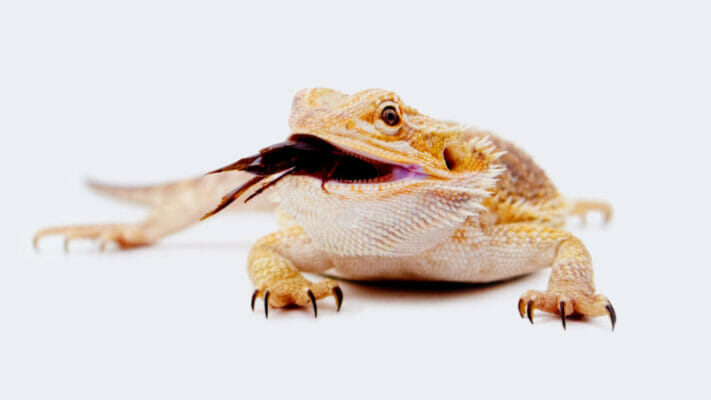Bearded dragons are omnivorous reptiles that are commonly kept as pets.
They have a varied diet that includes both plants and animals. Among the animal-based foods that they eat, insects play a major role. But what insects can bearded dragons Eat?
In this article, we will look at the different types of insects that can be fed to bearded dragons and their nutritional benefits.
What Insects Can Bearded Dragons Eat?
Here’s a comprehensive guide to safe bugs for bearded dragons:
1. Dubia Roaches
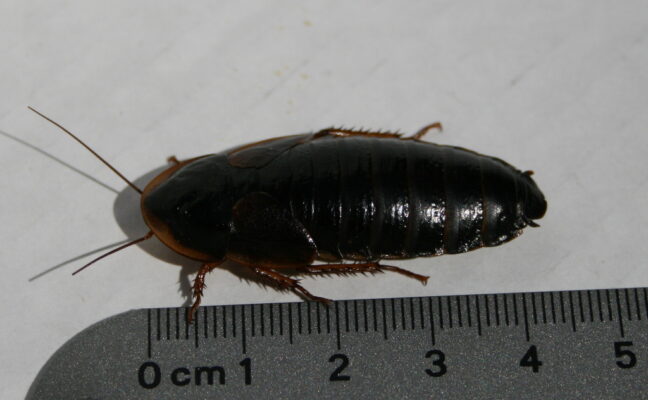
Dubia roaches are one of the most commonly fed insects to bearded dragons.
They are a great source of protein, vitamins, and minerals. Dubia roaches are easy to breed, making them a readily available food source for pet owners.
They are also known for their high palatability, which makes them a popular choice among bearded dragon owners.
Nutritional Information
2. Crickets
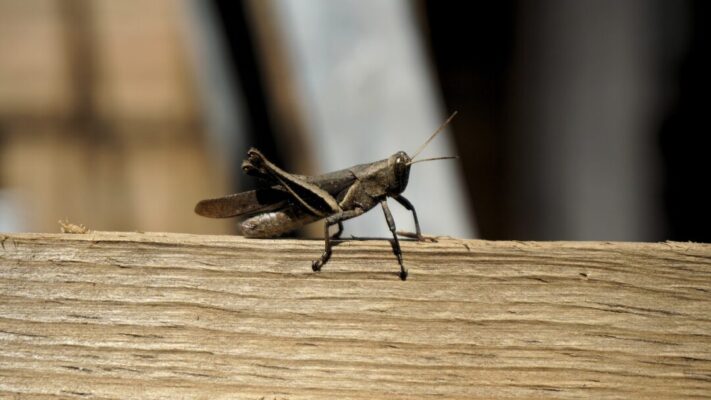
Crickets are another popular food option for bearded dragons.
They are readily available in pet stores and are an excellent protein source.
Crickets are also high in calcium, essential for the proper growth and development of bearded dragons.
However, it is important to note that crickets can be noisy and may jump around in their habitat, making them a less desirable option for some owners.
Nutritional Information
3. Waxworms
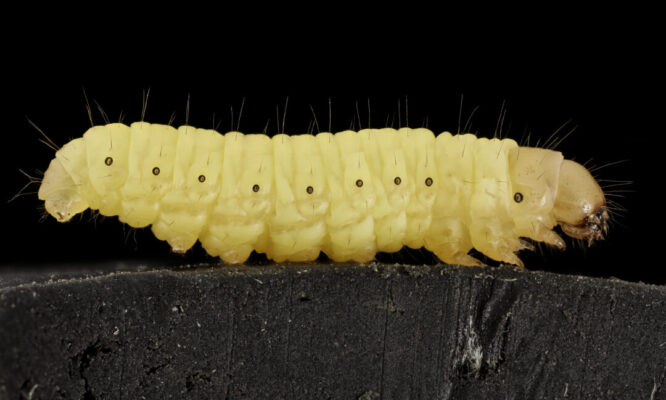
Waxworms are a high-fat food source often used as a treat for bearded dragons.
They are soft and have a creamy texture, which makes them a popular choice among bearded dragons.
However, wax worms should only be fed to bearded dragons in moderation as they are high in fat and can lead to obesity if fed in large quantities.
Nutritional Information
4. Super Worms
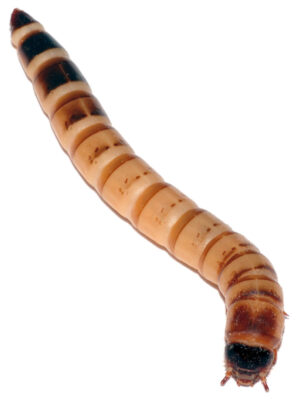
Super worms are a great food option for bearded dragons due to their high protein content.
They are also an excellent source of calcium and are easy to digest.
Super worms are a little larger than mealworms, making them a good choice for larger bearded dragons.
Nutritional Information
5. Mealworms
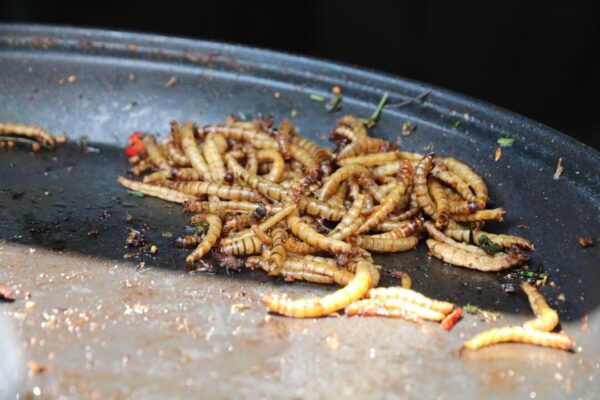
Mealworms are a common food source for bearded dragons.
They are small in size and are easy to digest. Mealworms are an excellent source of protein, calcium, and vitamins.
They are also readily available in pet stores and are relatively inexpensive.
Nutritional Information
6. Hornworms

Hornworms are a highly nutritious food source for bearded dragons.
They are high in protein and calcium and are also a good source of vitamins and minerals.
Hornworms are a little more expensive than other insect options, but they are a great treat for bearded dragons.
Nutritional Information
7. Silkworms
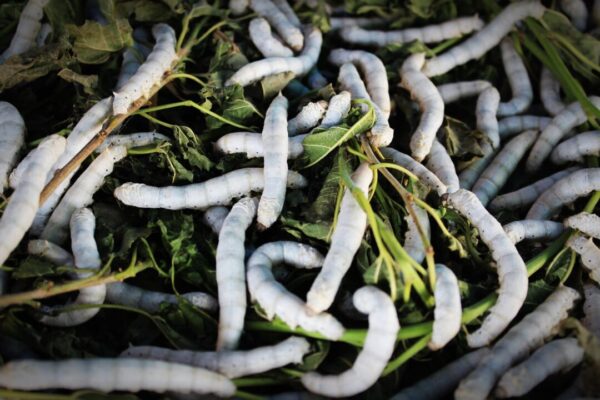
Silkworms are a nutritious food source for bearded dragons that are high in protein and calcium.
They are also a good source of vitamins and minerals.
Silkworms are a little more expensive than other insect options, but they are a great treat for bearded dragons.
Nutritional Information
8. Butterworms
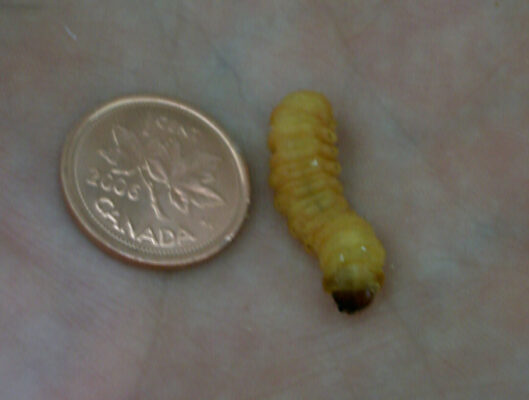
Butterworms are a high-fat food source often used as a treat for bearded dragons.
They are soft and have a creamy texture, which makes them a popular choice among bearded dragons.
However, butterworms should only be fed to bearded dragons in moderation as they are high in fat and can lead to obesity if fed in large quantities.
Nutritional Information
9. Black Soldier Fly Larvae
Black Soldier Fly Larvae are a nutritious food source for bearded dragons high in protein and calcium.
They are also a good source of vitamins and minerals.
Black Soldier Fly Larvae are a little more expensive than other insect options, but they are a great treat for bearded dragons.
Nutritional Information
10. Earthworms
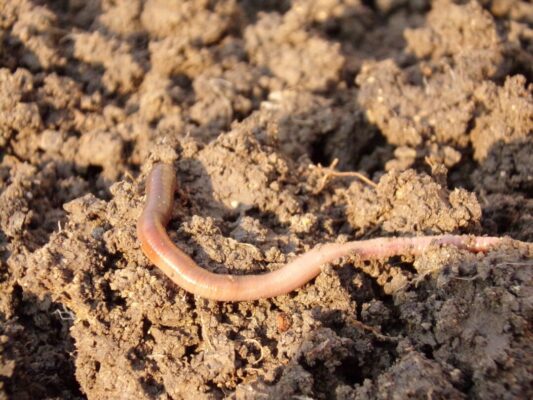
Earthworms are a common food source for bearded dragons and are an excellent source of protein, vitamins, and minerals.
Earthworms are easy to find in the wild, but pet owners should only feed their bearded dragon’s earthworms that have been collected from pesticide-free areas.
Nutritional Information
Conclusion
Insects play an important role in the diet of bearded dragons. Each type of insect offers unique benefits and should be considered when planning a well-rounded diet for your pet.
It is important to note that insects should be fed in moderation and not make up most of a bearded dragon’s diet.
In addition to insects, a balanced diet should include fresh fruits and vegetables.
When feeding insects, it is essential to ensure that they are gut-loaded, meaning that they have been fed a nutritious diet before being offered to your bearded dragon.
It will ensure that your pet receives the maximum nutritional benefits from its insect-based diet. With proper care and a balanced diet, your bearded dragon will thrive and remain healthy for years to come.
Related Articles:
What Fruits Can Bearded Dragons Eat? -20 Best Fruits List
Can Bearded Dragons Eat Bloodworms?
Can Bearded Dragons Eat Edamame?

